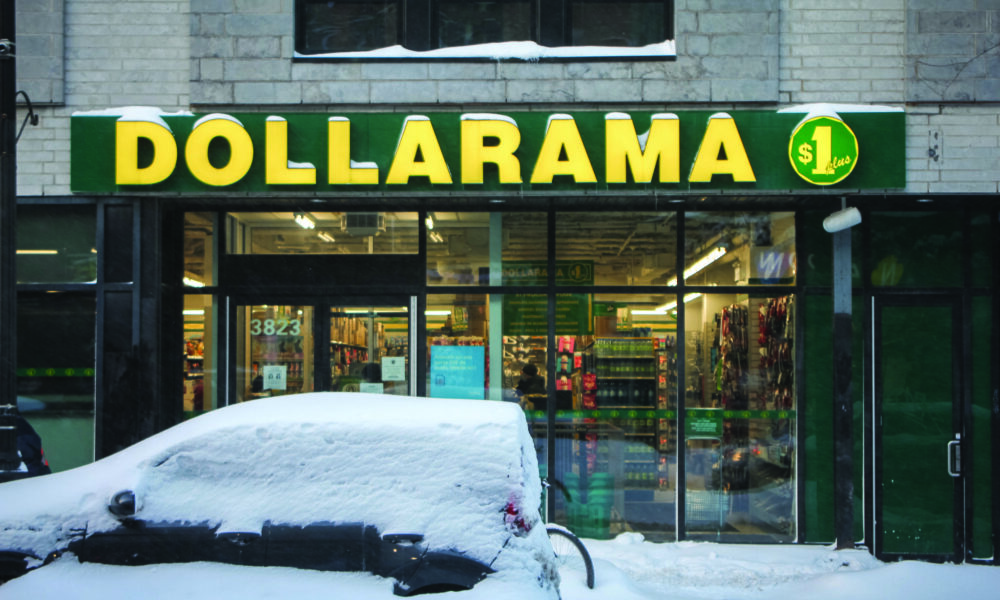On Feb. 10, McGill’s Committee to Advise on Matters of Social Responsibility (CAMSR) issued its report on the expression of concern the McGill Corporate Accountability Project (MCAP) submitted to the university’s Board of Governors (BoG) in August 2021. The expression of concern regarded the alleged human rights abuses and mistreatment of migrant warehouse workers by Dollarama—a company that McGill had invested $3.3 million in as of Dec. 2020. The BoG shared the report with MCAP on Feb. 14 and informed them that CAMSR recommended McGill take no action.
MCAP originally penned its expression of concern after evidence surfaced throughout 2020 and 2021 of immigrant warehouse workers being mistreated by Dollarama. Reports detailed that workers were not receiving first aid after being injured on the job, or were being forced to work overtime for no pay, among other things.
The Association of McGill University Support Employees (AMUSE) and Montreal’s Immigrant Workers Centre (IWC) collaborated with MCAP throughout the process of creating the 16-page report, which included evidence compiled from multiple news reports, a 2016 report compiled by the Integrated Health and Social Services University Network Centre-Sud-de-l’Île-de-Montréal and more.
According to Frédérique Mazerolle, a McGill media relations officer, CAMSR made its decision based on its inability to find evidence of “social injury,” which it defines as something that causes extreme harm, social or otherwise. Furthermore, Mazerolle explained that according to CAMSR’s mandate, an expression of concern must contain evidence of “a pattern of breeches of existing rules” or “a pattern of serious and continuing” violations of business behaviour standards to warrant action on the part of the university.
“Although the submission provided testimonies of warehouse workers expressing concerns relating to their income, employment and health and safety conditions, these concerns appear to be limited in number, and are not sufficiently supported by evidence demonstrating the undertaking of other due processes, such as evidence considered by a tribunal or other regulatory body,” Mazerolle wrote in an email to The McGill Tribune.
Samuel Helguero, 3L, co-leader of MCAP, and one of the primary writers of the expression of concern, was dismayed by CAMSR’s report. He argued that the criteria that the committee used to evaluate the evidence submitted was arbitrary and stricter than they would have been in a court of law.
“The issue here is that CAMSR is just inventing standards,” Helguero said in an interview with the Tribune. “I am convinced that if I brought this before a judge and they were deciding on the balance of probabilities, whether or not there was social injury here, reading through all this testimony, all the statistics and evidence, they would agree that there has been social injury.”
AMUSE’s communications and outreach officer, Katia Lo Innes, views CAMSR’s report as part of a larger pattern of McGill’s continued refusal to support living wages. McGill has stalled contract negotiations with McGill University’s Non-Academic Certified Association over wage increases, while floor fellows are also struggling to secure fair wages and more flexible meal plan options.
“McGill continues to prove that it does not care about workers, nor does it care about social impact, it only cares about maintaining the status quo,” Lo Innes said in an interview with the Tribune. “Continuing to invest in Dollarama, a company that underpays its employees and reportedly pays third party employees and migrant workers illegal wages, shows where McGill’s priorities lie.”
Helguero agrees with Lo Innes. He views McGill’s inaction in the face of what he believes are blatant human rights abuse to be a clear lack of respect and care for immigrant workers.
“Dollarama workers saying very similar things about their employer publicly […] should be believed, just as we have the tendency, and should have the tendency, to believe victims,” Helguero said. “It baffles me that someone could doubt their testimonies [….] McGill’s response shows insensitivity to the experience of workers.”








